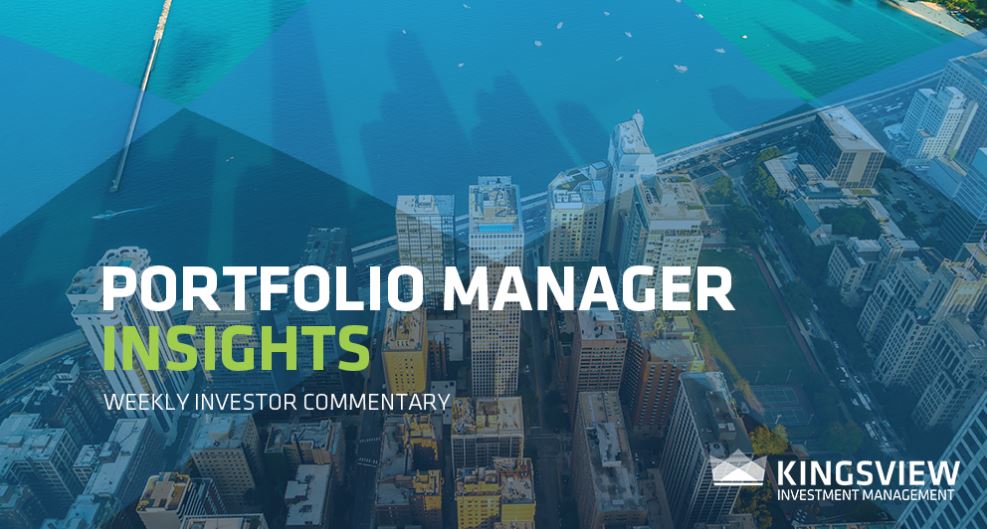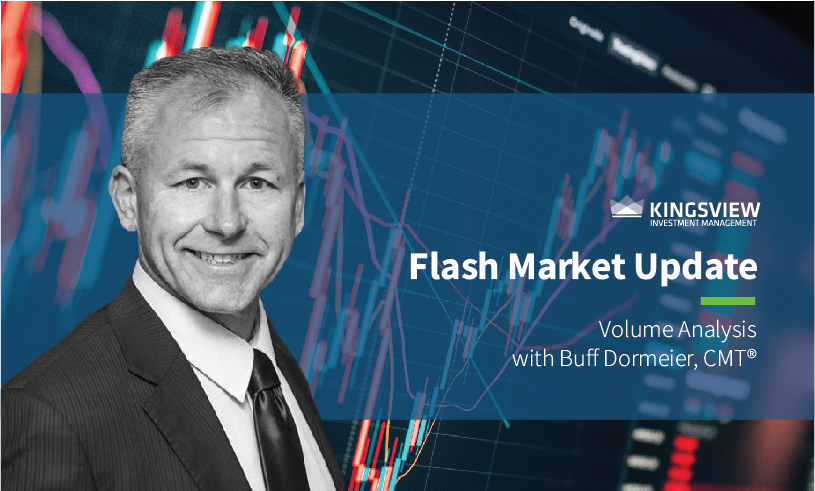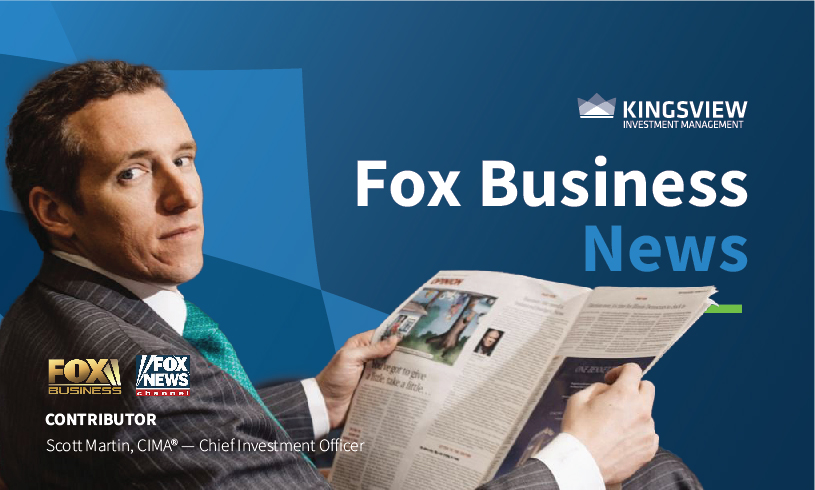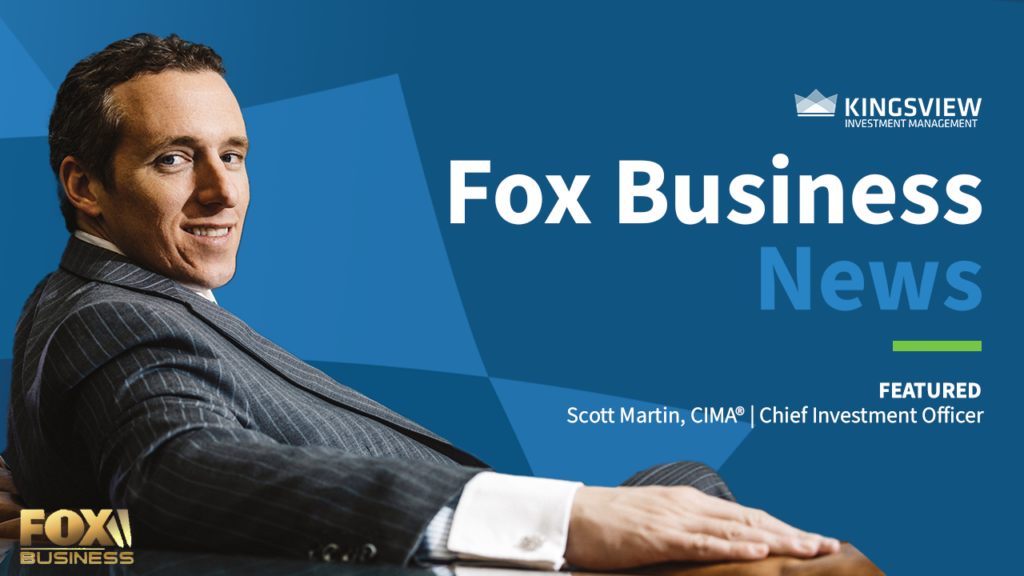Kingsview CIO Scott Martin on Fox News Business Kennedy 2.28.23
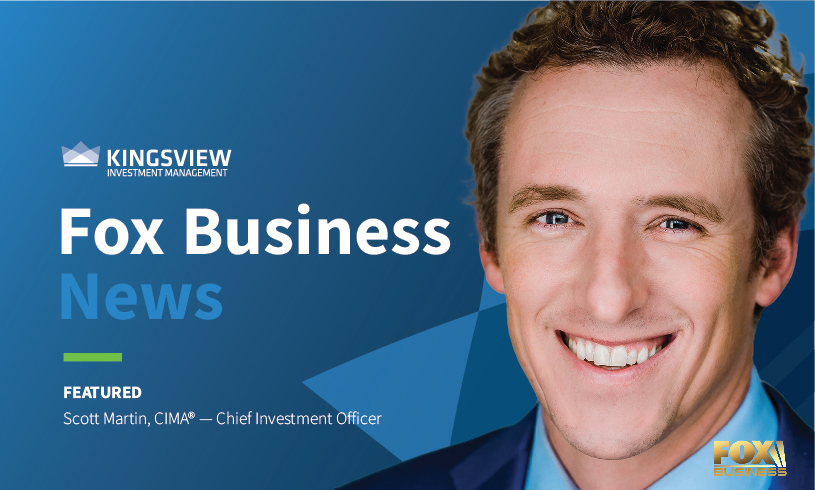
Click here to listen to the full interview.
Program: Kennedy
Date: 2/28/2023
Station: Fox Business News
Time: 7:00PM
LISA KENNEDY: High inflation is costing Americans an extra $395 a month. This according to a new report from Moody’s Analytics. Spending is up. Inflation time, the economy. It’s a roulette wheel. So how can we get some stability? Here? With me now, Kingsview Wealth Management, chief investment officer and Fox News contributor Scott Martin. Hello, Scott.
SCOTT MARTIN: Speaking of stability, you know, how am I supposed to follow that memo? I’m not talking about the screw thing, the doodads, the trinkets. Gosh, I don’t know if I have anything for you, but let’s try it.
KENNEDY: Okay. Why is spending up when there could be a looming recession and things are so expensive? Because it’s not spending that’s up just on food and rent, which are higher than other things. It is on the trinkets, doodads and tchotchkes.
MARTIN: That’s it. Tchotchkes, Yes. And I love me some food and rent, too. Don’t get me wrong. I mean, that’s my life as well on the dark side. So a couple of things, Kennedy. It’s a good question. One is spending is up because prices are inflated, so adjusted for inflation, the numbers don’t look as great. The second key, though, is the economy is better than people think it is, and people are doing better than I think a lot of folks are getting credit for. And you talked about the Gen-X and then the millennial generation more, more so the millennial generation. The reason that they’re so levered in debt is because they’re the biggest generation. So some of the numbers look a little bit skewed when you think about the high income earners in this economy. Kennedy Are the spenders as similar to how they are the taxpayers. So they’re actually doing okay, the high income earners, and they’re the ones that are spending a lot of this money that’s kind of showing up in some of the data points, whether the prices are higher or not.
KENNEDY: But even the high income earners are living paycheck to paycheck, 45% of them are, whereas average income earners, 60% of them are living paycheck to paycheck. I think it’s actually higher than that. You know, when when you read about surveys of people who don’t even have 600 or $1,000 in a savings account, if something catastrophic were to happen, you know, people are one bad move away from ruin if they are living in debt as it appears they are, especially younger millennials or older millennials.
MARTIN: I feel that that’s true. And I mean, I’ve been I’ve been both at times, I guess. And it’s some of them, though, the higher income earners, I mean, some of the folks in the top 20, 10, 1% are doing fine. And so there’s there’s kind of a dichotomy here. And it’s fun with statistics, I know, to kind of parse that out, because it also depends on where you live and things like that. The one thing I’ll tell you about debt, though, is debt is like probably one of the worst four letter words in this country. I mean, which says a lot these days, but it’s not a bad thing. I mean, look around the world. A lot of countries are in a lot of debt. I mean, a lot of consumers are in debt. I mean, I’ve been in debt kind of on my life in the sense of I’ve had a lot of debt. But the reality is this if you can service the debt, meaning pay the interest off a lot of debt, gets invested and reinvest it and so forth, and you become more wealthy by having a chance to kind of leverage, as they call it, your income or leverage your assets. So sometimes when debt is used as a as a weapon by the government or by folks getting upset, I just don’t see it that way because I think it’s more about having debt responsibly, so responsibly that might actually.
KENNEDY: But what about consumer debt. I’m not talking about a mortgage or second home, You know, what about credit card debt? That is what if you can’t service it? What if, you know, interest rates are going up, the Fed is going to continue to raise interest rates. What does that do to spending? If spending is really hot right now, the economy is weird, Some things are great, some things totally suck. So if the Fed does raise interest rates even higher, what does that do to the spending picture and to a recession?
MARTIN: Well, great call, and I don’t think the Fed’s going to do that. But let’s say they do that. I think they’ve got two more hikes and then they’re done. But here’s the thing. Open markets, interest rates, which are really fun to talk about solo or at bars or whoever with people I’m trying to connect with open market interest rates, meaning the actual rates that are out there in the open market. I mean, stuff that’s kind of set by really just average everyday trading are down from where they were last year. So they’ve already started to come off, meaning that the market is already handicapping the fact that the Fed is closer to being done maybe than they are to the beginning. And so in that sense, I think this whole fear about debt service levels going to the moon are not correct. Besides the fact that some people want to grow cabbage there. The point too though is…
KENNEDY: We’re going to do it a little later in the show. I’m glad you brought that up. Matt Damon died at the end of The Martian.
MARTIN: I see that on Twitter.
KENNEDY: It was really sad. So we’re going to have to console people with different ways of surviving when we outspend ourselves on Earth. Scott Martin, thank you so much.
MARTIN: The struggles real. See you, Kennedy
